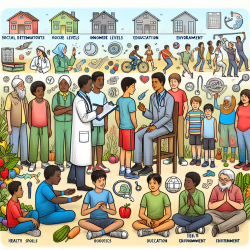Introduction
In the ever-evolving landscape of public health initiatives, the need for effective multicultural and multilingual home-based programs has never been more critical. As practitioners, understanding the organizational contexts, implementation processes, and capacity outcomes of these programs can significantly enhance our ability to deliver impactful services. This blog delves into the findings of a recent study by Kim et al. (2022) and explores how these insights can be leveraged to improve practice and outcomes.
Understanding the Study
The study conducted by Kim et al. (2022) employed a sequential exploratory, mixed-methods approach to examine the impact of a home-based program intervention on organizational contexts and capacity outcomes. The research involved 20 participants from nine multicultural, multilingual community-based organizations. The primary aim was to develop community-designed, home-based programs tailored to the unique needs of diverse populations.
Key Findings
One of the standout findings was that 59% of participants reported increased implementation knowledge, while 74% found capacity-building providers to be the most helpful resource. Despite these positive individual outcomes, the study noted no statistically significant changes in organizational contexts or capacity outcomes after six to seven months. This highlights the complexity of implementing change within diverse organizational settings.
Implications for Practitioners
For practitioners in speech-language pathology and related fields, these findings underscore the importance of:
- Engaging with Capacity Building Providers: Building partnerships with these providers can enhance your implementation knowledge and provide valuable resources for program development.
- Understanding Organizational Contexts: Recognizing the unique challenges and strengths of your organization can guide more effective program implementation.
- Adapting to Diverse Needs: Tailoring programs to meet the cultural and linguistic needs of your community is crucial for success.
Encouraging Further Research
While the study provides valuable insights, it also highlights areas for further research. Practitioners are encouraged to explore:
- The impact of extended timelines on program outcomes.
- Strategies for increasing community-based organization engagement in program design and implementation.
- Methods for collecting baseline data to better assess program impact.
Conclusion
By embracing the findings of this study, practitioners can enhance their skills and contribute to the development of effective multicultural, multilingual home-based programs. These programs hold the potential to transform communities and improve outcomes for diverse populations. To delve deeper into the research and explore the original study, please follow this link: Organizational contexts, implementation process, and capacity outcomes of multicultural, multilingual Home-Based Programs in public initiatives: A Mixed-Methods study.










